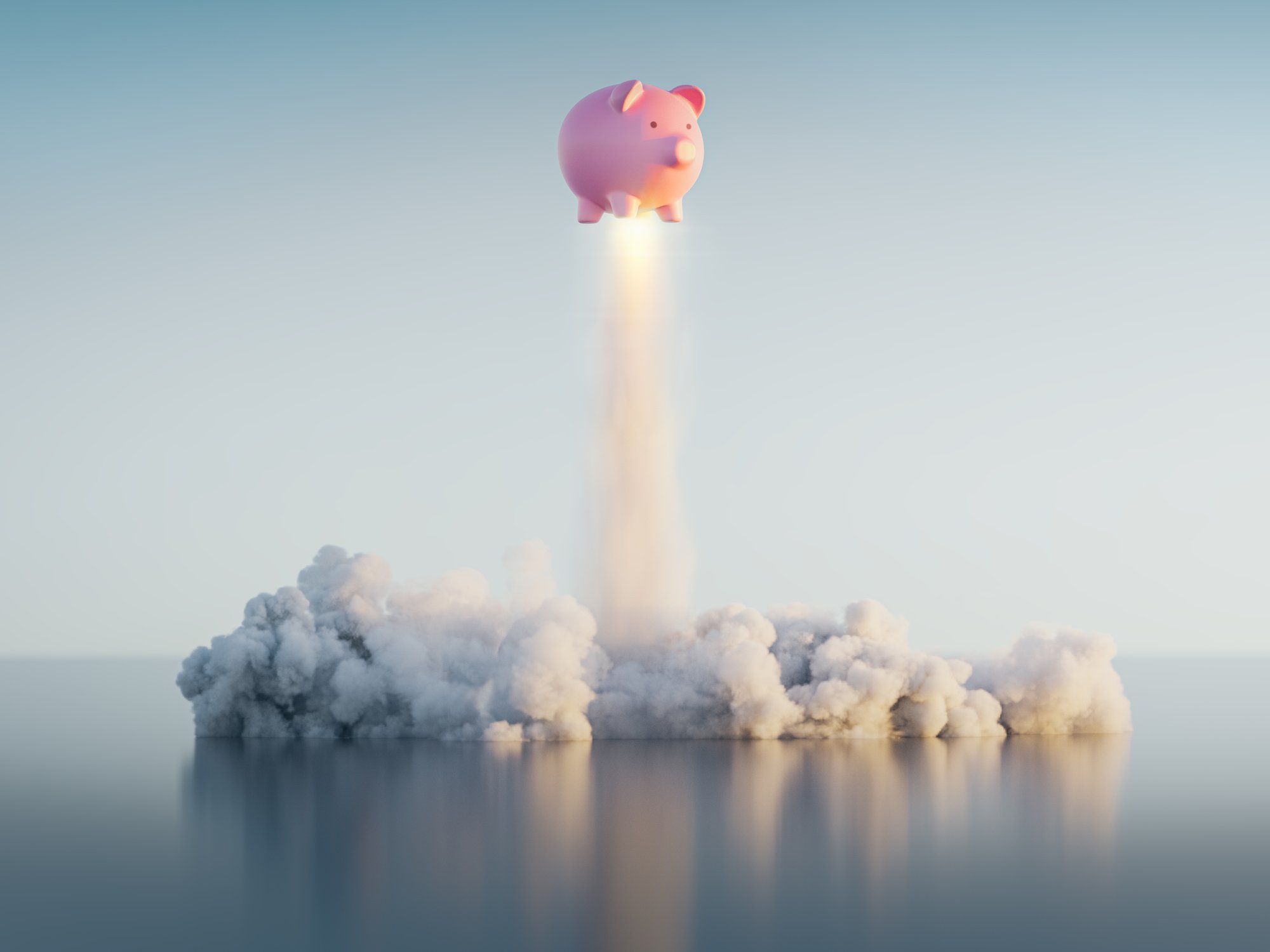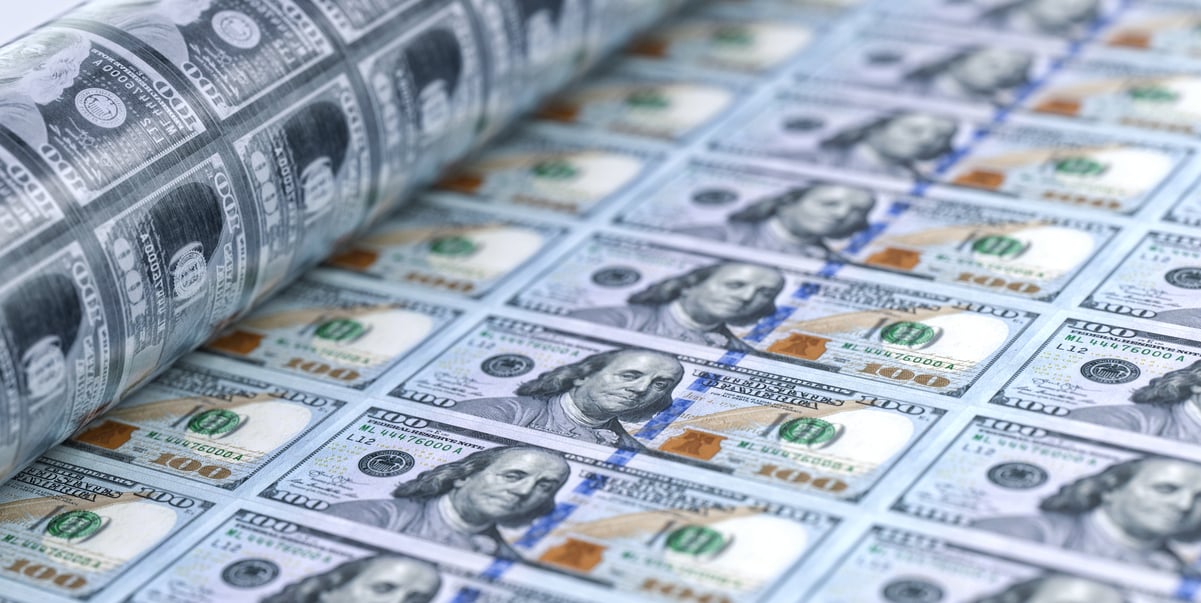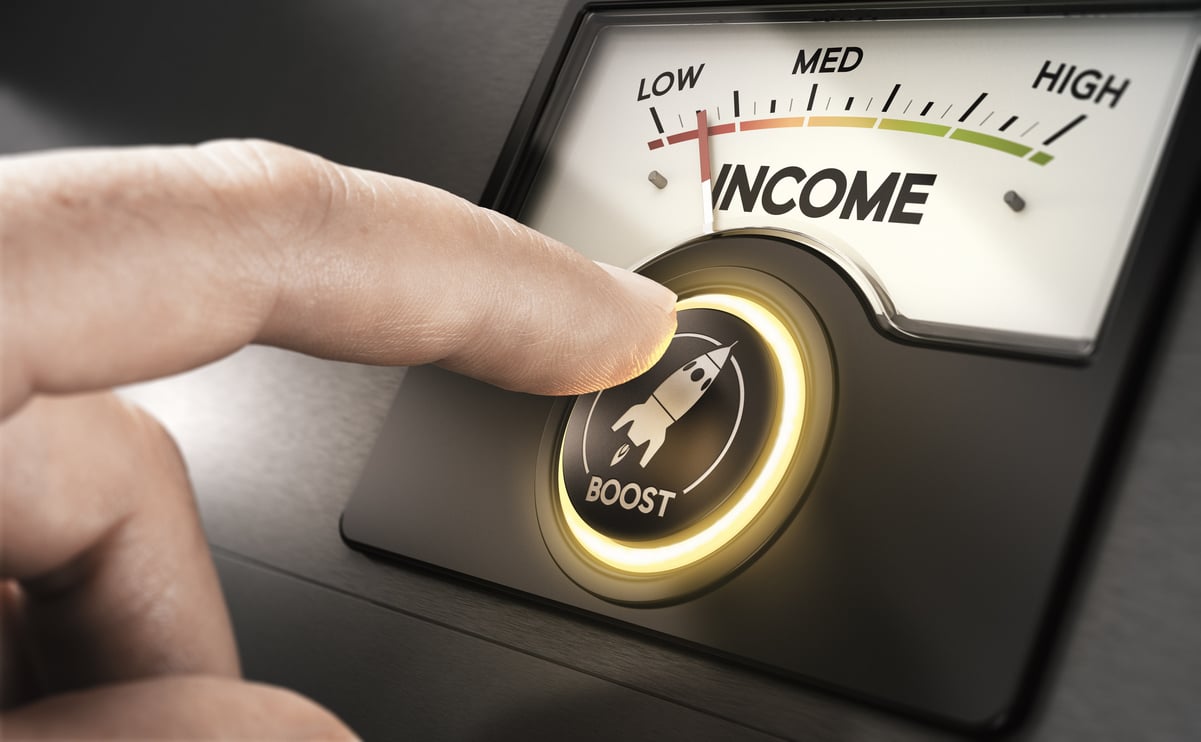Berkshire Hathaway (BRK.A +0.96%) (BRK.B +1.35%) CEO Warren Buffett may well be the most-revered investor of our time. Buffett's simplistic investment strategy, which is to seek out businesses with sustainable competitive advantages, buy them, and hang onto them for exceptionally long periods of time, has worked wonders.
Since 1965, Berkshire's compound annual return rate of 20.3% more than doubles up the compound annual return rate of the benchmark S&P 500 of 10% -- and that's inclusive of dividends. On an aggregate, we're talking about a 2,744,062% return for Buffett's company versus a return of 19,784% for the S&P 500 over the same time frame.

Berkshire Hathaway CEO Warren Buffett at his company's annual shareholder meeting. Image source: The Motley Fool.
One way Buffett has generated these gains is through acquisitions. Easily the top deal of all time for the Oracle of Omaha was the purchase of insurer GEICO, which was completed in 1996. Purchased for an all-in price of nearly $2.35 billion, GEICO would likely be worth anywhere from $37 billion to $52 billion today, according to Motley Fool colleague Billy Duberstein.
In total, Buffett has made about 60 acquisitions in 50 years as CEO of Berkshire Hathaway.
However, as alluded to above, Buffett is also a big fan of investing. He himself began investing at the tender age of 11 and today oversees a 52-security portfolio worth more than $185 billion.
There are a lot of ways to measure success and performance when it comes to investing. For instance, Berkshire Hathaway's 2019 shareholder letter notes that the entire 52-security portfolio has an all-in cost basis of around $110 billion (this also includes $10 billion in preferred stock with Occidental Petroleum). As noted, this portfolio is worth $185 billion today, and that's not counting the numerous dividend payments Buffett has received over the decades.
Nominal gain is another measure of success. For example, Berkshire Hathaway has an initial cost basis on Apple (AAPL +4.12%) of nearly $35.3 billion. But that same position was worth $67.7 billion as of this past Wednesday, April 22 (again, not factoring in dividend payouts). Although it's unrealized, Buffett has made more than $32 billion on Apple stock.

Image source: Getty Images.
Buffett's top-performing stock picks
But my favorite measure of success is percentage gain, because it often takes time and investor resolve to yield jaw-dropping returns. Since we're talking about an investor who prides himself on a holding period of "forever," you can rest assured he has a number of big gainers in his portfolio. Here are Buffett's three top-performing stock picks on a percentage basis (through April 22).
Moody's: Up 2,286%
Quietly, credit ratings, analytics, and financial assessment services provider Moody's (MCO +0.40%) has become Berkshire Hathaway's top-performing stock. When Moody's was spun off from Dun & Bradstreet in 2000, Buffett and his team came into ownership of shares of Moody's at a cost basis of about $10.05 per share. Today, a share of Moody's can be had for almost $240, with the company paying out $2.24 a year in dividends. On share price alone, that's a 2,286% return, with an annual yield on cost of 22.3%!
Moody's is perhaps best known for rating bonds and debt securities -- and there couldn't be a more perfect time to be in this business. Given that U.S. and global bond yields have plunged, corporations are going to be more inclined to raise money through debt offerings. Additionally, economic hardships tied to the coronavirus disease 2019 (COVID-19) are liable to have publicly traded companies seeking to raise debt to bolster their balance sheets. Suffice it to say that Moody's credit ratings segment should be busy for the foreseeable future.
However, don't overlook research analytics, which has the potential to be a double-digit growth driver. We've just emerged from a period of unprecedented stock market volatility, and businesses will be looking to Moody's Analytics for guidance.

Image source: Coca-Cola.
Coca-Cola: Up 1,308%
Warren Buffett's longest-tenured holding (owned since 1988) also happens to be one of his top performers. Beverage giant Coca-Cola (KO +0.72%), with its initial cost basis of about $3.25, now goes for north of $45 per share. That's a nominal return of 1,308%, and it doesn't count the $1.64 per-share dividend Coke pays out every year. Based on initial cost, Berkshire Hathaway doubles its money on Coca-Cola every two years on its dividend alone.
One reason Coca-Cola is so wildly successful is because it has a presence in all but one country (North Korea) worldwide. This allows the company to take advantage of more robust growth opportunities in emerging and developing economies while also generating highly predictable cash flow in developed markets.
Coca-Cola also happens to be one of the most-recognized brands in the world, which helps when it comes to engaging consumers and forming a connection to the brand. Coca-Cola has used everything from holiday themes and in-store displays to digital marketing and even social media influencers to push its image and create a multigenerational connection with its products.
With 21 brands currently generating at least $1 billion in sales, it's safe to say that Buffett might never sell his 400-million-share stake in Coca-Cola.

Image source: American Express.
American Express: Up 872%
If you're noticing a trend by now, it's that three of Buffett's most-tenured holdings are his top-performing stocks. Having been held since 1993, credit-services giant American Express (AXP +0.19%) has an initial cost basis of around $8.49, according to Berkshire Hathaway's 2019 shareholder letter, but has returned 872% on a nominal basis. AmEx's $1.72 in annual payouts also works out to a 20.3% yield on initial cost.
One reason American Express has been such a successful long-term investment is its ability to double dip. By this I mean it generates fees from merchants by acting as a payment facilitator but also earns interest and fees by lending money out via its line of credit cards. Although this does expose AmEx to credit delinquencies during periods of recession, the U.S. economy has historically spent far more time expanding than contracting, thereby allowing the company to pump up its profits.
Furthermore, American Express has a history of focusing on more affluent clientele. Wealthier AmEx cardholders are less likely to adjust their spending habits or fail to make their payments when economic hiccups do arise. This sets AmEx up to thrive over the long run.











